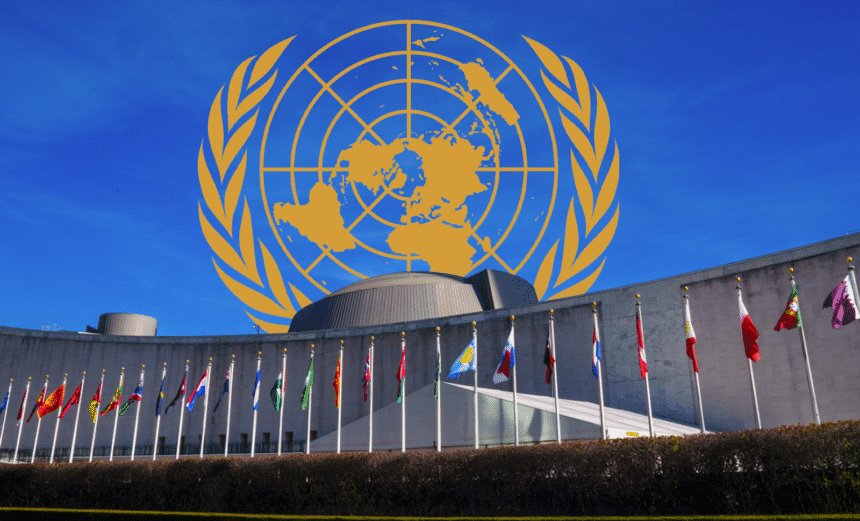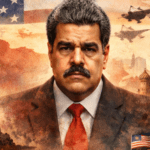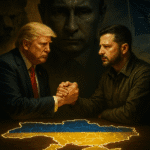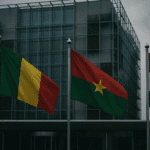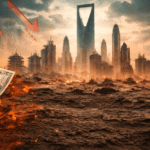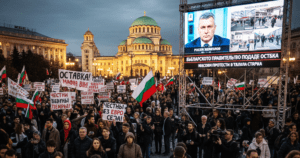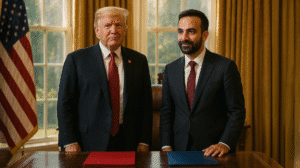World leaders from more than 150 nations have gathered at the United Nations headquarters in New York for the 80th session of the United Nations General Assembly (UNGA), with the high-level debate running from September 23 to 29 as part of the UN’s annual High-Level Week. Presided over by Annalena Baerbock of Germany, elected President of the Assembly earlier this year, the session comes at a time of deep geopolitical divisions and crises that are testing the credibility of the United Nations itself. The official theme, “Better together: 80 years and more for peace, development and human rights,” reflects both the organization’s anniversary and its ongoing struggle to maintain relevance in a rapidly fragmenting world.
Tradition dictated that Brazil deliver the opening address. President Luiz Inácio Lula da Silva called for greater fairness in global economic relations and stronger action on climate change. “It is unacceptable that the poorest bear the heaviest cost of a climate crisis they did not create,” Lula declared, urging wealthier nations to introduce an international tax on fossil fuel profits to fund adaptation for vulnerable countries. His remarks were welcomed by many in the Global South, who see the UN as one of the few platforms where their voices can counterbalance those of more powerful nations.
The second speaker was U.S. President Donald Trump, marking his return to the UN stage after his re-election. His remarks, sharply nationalistic, set a very different tone. “The United States will no longer be the world’s ATM,” Trump said, accusing European allies of relying too heavily on American defense. He also rejected growing international calls to recognize Palestinian statehood, insisting, “Recognizing terrorists as a nation is not peace. It is surrender.” His comments underscored Washington’s close alignment with Israel and drew anger from Arab and Muslim-majority states.
The ongoing wars in Gaza and Ukraine dominated discussions throughout the Assembly. Ukrainian President Volodymyr Zelenskyy delivered one of the most striking speeches of the week, warning that Russia’s invasion had triggered a new global threat. “We are entering the most destructive arms race in human history,” he told delegates, pointing to the deployment of drones and artificial intelligence on the battlefield. “Without rules, AI and autonomous weapons will spread chaos far beyond Ukraine. We ask the world not only for weapons to defend ourselves, but for leadership to prevent humanity from being destroyed by its own technology.” His appeal for international regulation of military AI resonated with many countries, though some major powers remained reluctant to commit to new restrictions.
The war in Gaza produced some of the most emotional interventions. Palestinian President Mahmoud Abbas, denied a U.S. visa, addressed the Assembly via video link. “What Israel is doing in Gaza is crimes against humanity, war crimes before the eyes of the world,” he said, calling on the UN to grant Palestine full membership. “Our right to statehood is not a favor to be given; it is justice long denied.” His remarks drew applause from Arab, African, and Latin American delegations, though the U.S. and Israel dismissed them as inflammatory. South Africa’s President Cyril Ramaphosa echoed Abbas’s call, saying, “The people of Palestine must not be denied dignity and statehood any longer.” Israel’s delegation walked out during his speech, underlining the bitterness of the divide.
In a controversial turn, Syrian President Ahmed al-Sharaa took the podium, demanding an end to Western sanctions. “Sanctions have strangled our people more than war ever did. Lift them, and let Syria rebuild,” he said. His presence was boycotted by most Western delegations but acknowledged by some regional neighbors who are gradually re-engaging with Damascus.
Amid these conflicts, calls for institutional reform echoed through the Assembly hall. Kazakhstan’s President Kassym-Jomart Tokayev insisted, “A Security Council frozen in 1945 cannot solve the crises of 2025. We need a Council that reflects Africa, Asia, Latin America, the majority of the world.” French President Emmanuel Macron added his voice, noting, “If we want the United Nations to survive another 80 years, it must represent today’s world, not yesterday’s.” Many leaders from developing regions supported the push to expand the Council’s permanent membership and give greater representation to voices long marginalized in global decision-making.
Climate change and technology also featured prominently on the agenda. Leaders of small island states, including Samoa’s Prime Minister Fiame Naomi Mata’afa, warned of existential threats from rising seas. “If sea levels rise another meter, we disappear. Do not talk to us about 2050. We need action in 2025,” she said. At the same time, the UN launched a Global Dialogue on AI Governance to address the risks of artificial intelligence, surveillance technologies, and digital inequity. Secretary-General António Guterres urged cooperation, warning, “Artificial intelligence must be governed for the benefit of humanity, not left to the chaos of the marketplace or the battlefield.”
Meanwhile, humanitarian agencies issued dire warnings about funding shortages. UN relief chief Martin Griffiths told delegates, “Our funds are drying up while needs are exploding. If major donors do not step forward, millions will face famine and disease.” Appeals for aid in Sudan, Yemen, Afghanistan, and other crisis zones remain billions of dollars short, with donor governments citing domestic pressures.
As always, much of the real diplomacy unfolded behind closed doors. Trump held tense talks with European leaders over defense commitments, Zelenskyy pushed for renewed security guarantees, Arab leaders coordinated strategies on Palestine, and African nations pressed collectively for a stronger voice within the UN system. Analysts described the atmosphere as one of urgent fragmentation: leaders recognize the need for cooperation but remain deeply divided on how to achieve it.
The 80th UNGA has underscored both the enduring importance of the United Nations and its growing fragility. Eight decades after its founding, the institution remains the only forum where every country can speak, but its ability to forge consensus appears more uncertain than ever. The wars in Gaza and Ukraine, the urgency of climate change, the regulation of technology, and demands for reform have all collided in a week of fiery speeches and tense diplomacy. As one African diplomat remarked in the corridors, “The UN is 80 years old. The question is, will it grow stronger in its old age or fade away while the world burns?”

